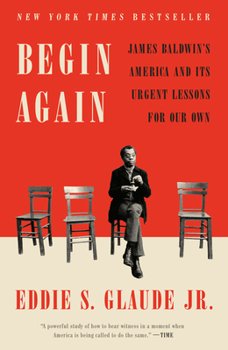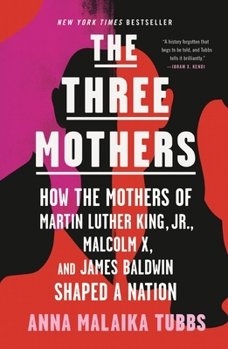James Baldwin: Later Novels (Loa #272): Tell Me How Long the Train's Been Gone / If Beale Street Could Talk / Just Above My Head
The Library of America completes its edition of the collected fiction of the literary voice of the Civil Rights era with this volume gathering three revealing later works of the 1960s and '70s.
With such landmark novels as Go Tell It on the Mountain, Giovanni's Room, and the essay collections Notes of a Native Son and The Fire Next Time, James Baldwin established himself as the indispensable voice of the Civil Rights era, a figure whose prophetic exploration of the racial and sexual fissures in American society raised the consciousness of American readers. But by the late 1960s and '70s many regarded Baldwin as being out of sync with the political and social currents transforming America: too integrationist for Black Arts Movement writers and others on the Left, yet too "pessimistic" for many white readers, and as a result his later novels have never received the consideration given his earlier fiction. Sober in outlook but ambitious in scope, these works show Baldwin responding with his signature passion--for music, for justice, for life--and searching intelligence to the new realities of a rapidly changing cultural landscape, as the Movement era gives way to the age of identity politics that we still live in today. This culminating volume in the Library of America edition of his fiction illustrates how Baldwin continues to be relevant in twenty-first-century America, especially in his dramatizing of the unequal treatment of black men by the police and the justice system, his nuanced depictions of the black family, and his explorations of sexuality.
LIBRARY OF AMERICA is an independent nonprofit cultural organization founded in 1979 to preserve our nation's literary heritage by publishing, and keeping permanently in print, America's best and most significant writing. The Library of America series includes more than 300 volumes to date, authoritative editions that average 1,000 pages in length, feature cloth covers, sewn bindings, and ribbon markers, and are printed on premium acid-free paper that will last for centuries.
The Library of America completes its edition of the collected fiction of the literary voice of the Civil Rights era with this volume gathering three revealing later works of the 1960s and '70s.
With such landmark novels as Go Tell It on the Mountain, Giovanni's Room, and the essay collections Notes of a Native Son and The Fire Next Time, James Baldwin established himself as the indispensable voice of the Civil Rights era, a figure whose prophetic exploration of the racial and sexual fissures in American society raised the consciousness of American readers. But by the late 1960s and '70s many regarded Baldwin as being out of sync with the political and social currents transforming America: too integrationist for Black Arts Movement writers and others on the Left, yet too "pessimistic" for many white readers, and as a result his later novels have never received the consideration given his earlier fiction. Sober in outlook but ambitious in scope, these works show Baldwin responding with his signature passion--for music, for justice, for life--and searching intelligence to the new realities of a rapidly changing cultural landscape, as the Movement era gives way to the age of identity politics that we still live in today. This culminating volume in the Library of America edition of his fiction illustrates how Baldwin continues to be relevant in twenty-first-century America, especially in his dramatizing of the unequal treatment of black men by the police and the justice system, his nuanced depictions of the black family, and his explorations of sexuality.
LIBRARY OF AMERICA is an independent nonprofit cultural organization founded in 1979 to preserve our nation's literary heritage by publishing, and keeping permanently in print, America's best and most significant writing. The Library of America series includes more than 300 volumes to date, authoritative editions that average 1,000 pages in length, feature cloth covers, sewn bindings, and ribbon markers, and are printed on premium acid-free paper that will last for centuries.


The Library of America completes its edition of the collected fiction of the literary voice of the Civil Rights era with this volume gathering three revealing later works of the 1960s and '70s.
With such landmark novels as Go Tell It on the Mountain, Giovanni's Room, and the essay collections Notes of a Native Son and The Fire Next Time, James Baldwin established himself as the indispensable voice of the Civil Rights era, a figure whose prophetic exploration of the racial and sexual fissures in American society raised the consciousness of American readers. But by the late 1960s and '70s many regarded Baldwin as being out of sync with the political and social currents transforming America: too integrationist for Black Arts Movement writers and others on the Left, yet too "pessimistic" for many white readers, and as a result his later novels have never received the consideration given his earlier fiction. Sober in outlook but ambitious in scope, these works show Baldwin responding with his signature passion--for music, for justice, for life--and searching intelligence to the new realities of a rapidly changing cultural landscape, as the Movement era gives way to the age of identity politics that we still live in today. This culminating volume in the Library of America edition of his fiction illustrates how Baldwin continues to be relevant in twenty-first-century America, especially in his dramatizing of the unequal treatment of black men by the police and the justice system, his nuanced depictions of the black family, and his explorations of sexuality.
LIBRARY OF AMERICA is an independent nonprofit cultural organization founded in 1979 to preserve our nation's literary heritage by publishing, and keeping permanently in print, America's best and most significant writing. The Library of America series includes more than 300 volumes to date, authoritative editions that average 1,000 pages in length, feature cloth covers, sewn bindings, and ribbon markers, and are printed on premium acid-free paper that will last for centuries.




